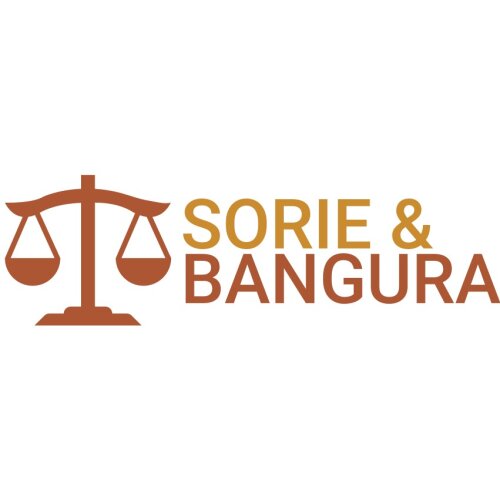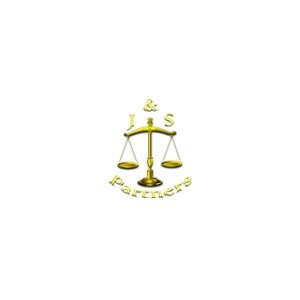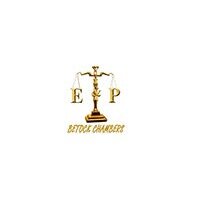Best Collaborative Law Lawyers in Freetown
Share your needs with us, get contacted by law firms.
Free. Takes 2 min.
Free Guide to Hiring a Family Lawyer
List of the best lawyers in Freetown, Sierra Leone
About Collaborative Law in Freetown, Sierra Leone
Collaborative Law is an alternative dispute resolution process that focuses on cooperative and amicable settlements rather than litigation. In Freetown, Sierra Leone, Collaborative Law is gradually being recognized as an effective means to address disputes, particularly in family law, business partnerships, and other civil matters. The process involves trained collaborative lawyers who work alongside parties to reach a consensual settlement, maintaining a respectful and trustful relationship between parties throughout the procedure.
Why You May Need a Lawyer
There are several common situations where you may require legal help in the realm of Collaborative Law:
- Disputes arising from divorce or separation where amicable solutions are sought.
- Issues in child custody or parenting arrangements that require a collaborative approach to decision-making.
- Business partnership disagreements where ongoing relationships are important.
- Family inheritance or estate disputes where parties desire to preserve relationships.
- Community or neighborhood disputes that could benefit from alternative resolution methods.
In these instances, a lawyer trained in Collaborative Law can guide the parties through negotiations, ensuring clarity, fairness, and confidentiality.
Local Laws Overview
The legal framework in Freetown, Sierra Leone, supports alternative dispute resolution methods, including Collaborative Law, although it is an evolving area. The key aspects include:
- Mutual agreement of both parties to engage in a collaborative process.
- The signing of a participation agreement that outlines the scope and terms of the collaboration.
- The commitment to voluntarily disclose all pertinent information necessary for resolution.
- The use of joint specialists or experts, agreed upon by both parties, when needed.
- The impartiality and unbiased approach maintained by collaborative lawyers facilitating the process.
Frequently Asked Questions
What is Collaborative Law?
Collaborative Law is a legal process that enables parties involved in a dispute to work with their lawyers and other professionals to resolve their differences without going to court.
How is Collaborative Law different from mediation?
While both processes focus on cooperative resolution, Collaborative Law involves each party having their own lawyer present throughout negotiations, whereas mediation typically involves a single mediator who assists the parties in reaching an agreement.
Who can participate in a Collaborative Law process?
Any party involved in a civil dispute who agrees to the collaborative rules can participate. This often includes parties involved in family, business, or community disputes.
Do I have to go to court with Collaborative Law?
No, the aim of Collaborative Law is to avoid court by reaching a mutual agreement through negotiation.
What happens if the collaborative process fails?
If the collaborative process does not result in a resolution, the parties can still opt to go to court, but they must hire new legal representation, as collaborative lawyers cannot represent their clients in future litigation related to the dispute.
What is a participation agreement?
A participation agreement is a signed document by all parties committing to the principles and process of Collaborative Law, often including confidentiality clauses and agreements to disclosure requirements.
Can Collaborative Law be used in business contexts in Freetown?
Yes, Collaborative Law can be effectively used in business contexts, particularly where preserving ongoing relationships is beneficial.
Is the information disclosed in the process confidential?
Yes, all information disclosed during the collaborative process is confidential and intended only to facilitate resolution.
Are there specific laws governing Collaborative Law in Sierra Leone?
While Sierra Leone does not have specific laws exclusively governing Collaborative Law, existing legal frameworks support the use and recognition of alternative dispute resolution methods.
How do I find a collaborative lawyer in Freetown?
You can find collaborative lawyers through local legal associations, referrals, or online legal directories that list lawyers who specialize in Collaborative Law.
Additional Resources
For further assistance and information, consider reaching out to the following resources:
- Sierra Leone Bar Association - for access to qualified legal professionals.
- Legal Aid Board of Sierra Leone - provides assistance and referrals for various legal matters.
- Ministry of Justice - for inquiries about legal processes and support within the legal framework.
- Local NGOs that focus on alternative dispute resolution techniques and community mediation.
Next Steps
If you need legal assistance in Collaborative Law, consider the following steps:
- Identify and list the issues you wish to resolve collaboratively.
- Research and reach out to qualified collaborative lawyers in Freetown.
- Schedule consultations to discuss your case and the collaborative process with a potential lawyer.
- Ensure you and the other party agree to participate in the process and understand its principles.
- Review and sign a participation agreement with the assistance of your collaborative lawyer.
- Engage in open and honest negotiations facilitated by your lawyer to reach a resolution.
Approaching your dispute with a collaborative mindset can lead to a more satisfying and less adversarial resolution, paving the way for positive future interactions.
Lawzana helps you find the best lawyers and law firms in Freetown through a curated and pre-screened list of qualified legal professionals. Our platform offers rankings and detailed profiles of attorneys and law firms, allowing you to compare based on practice areas, including Collaborative Law, experience, and client feedback.
Each profile includes a description of the firm's areas of practice, client reviews, team members and partners, year of establishment, spoken languages, office locations, contact information, social media presence, and any published articles or resources. Most firms on our platform speak English and are experienced in both local and international legal matters.
Get a quote from top-rated law firms in Freetown, Sierra Leone — quickly, securely, and without unnecessary hassle.
Disclaimer:
The information provided on this page is for general informational purposes only and does not constitute legal advice. While we strive to ensure the accuracy and relevance of the content, legal information may change over time, and interpretations of the law can vary. You should always consult with a qualified legal professional for advice specific to your situation.
We disclaim all liability for actions taken or not taken based on the content of this page. If you believe any information is incorrect or outdated, please contact us, and we will review and update it where appropriate.











